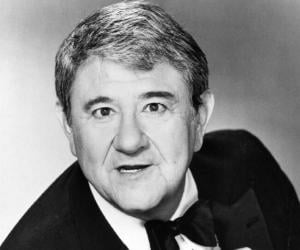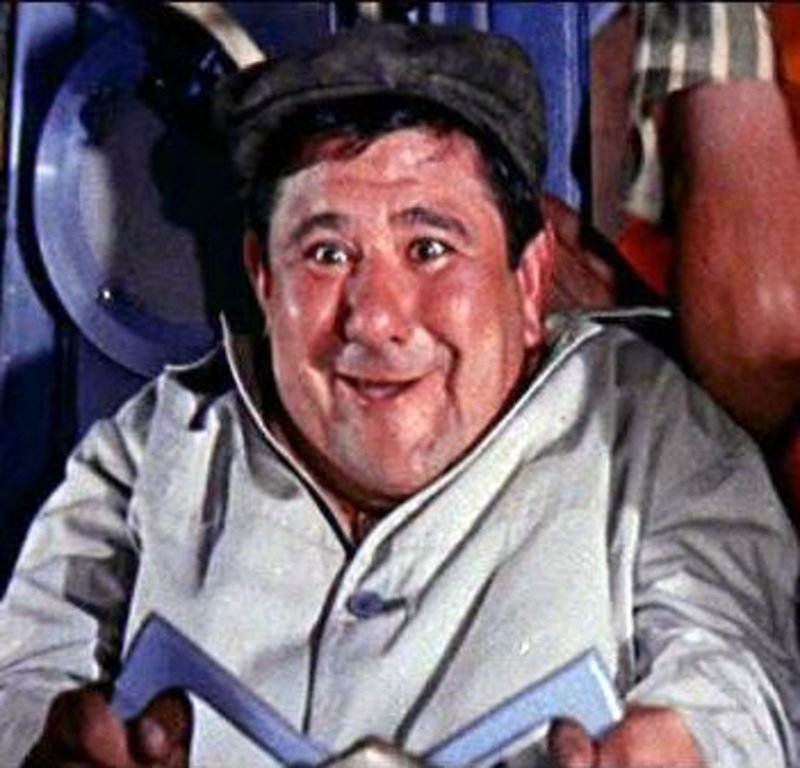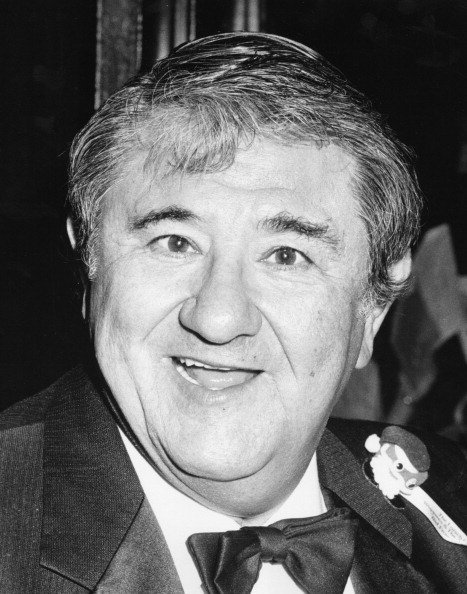

According to Trivial Pursuit, Hackett has the most appearances of any guest in the history of The Tonight Show Starring Johnny Carson. He was on the Johnny Carson show as a frequent guest. Hackett was also a guest on Jack Paar's last Tonight show in 1962. Hackett became known to a wider audience when he appeared on television in the 1950s and 1960s as a frequent guest on such talk shows as those of Jack Paar and Arthur Godfrey, telling brash, often off-color jokes, and mugging at the camera. Universal-International salvaged the project by hiring Hugh O'Brian and Hackett to take over the Abbott and Costello roles, using already shot footage of the comedy duo in some long shots Jones and his band became the main attraction. Several scenes had been shot with stunt doubles when Lou Costello was forced to withdraw due to illness. Abbott and Costello were set to make a feature-length comedy Fireman, Save My Child, featuring Spike Jones and His City Slickers. Hackett was an emergency replacement for the similarly built Lou Costello in 1954. No orda for her, juss orda for you!" The routine was such a hit that Hackett made a recording of it, and was hired to reprise it in the 1953 Technicolor Universal-International musical Walking My Baby Back Home, in which he was third-billed under Donald O'Connor and Janet Leigh. With a rubber band around his head to slant his eyes, Hackett's "The Chinese Waiter" lampooned the heavy dialect, frustration, and communication problems encountered by a busy waiter in a Chinese restaurant: "No, we no have sprit-pea soup. Hackett would not return to movies until 1953, after one of his nightclub routines attracted attention. The film demonstrated championship bowling techniques, with expert Joe Wilman demonstrating the right way and Hackett (in pantomime) exemplifying the wrong way.

#BUDDY HACKETT MOVIE#
Hackett's movie career began in 1950 with a 10-minute "World of Sports" reel for Columbia Pictures called King of the Pins. Jules White himself told several interviewers that the story was (censored), and he alternated between laughter and anger that Buddy was using his name to weave the tale. It was a tale by Hackett which he first told on The Tonight Show and it grew bigger and more fanciful as time went on. According to The Love Bug audio commentary, Hackett turned down the role.

In the late 1940s, Hackett's friend, Jules White, asked him if he would like to replace Curly Howard in The Three Stooges, due to Curly's stroke. He acted on Broadway, in Lunatics and Lovers, where Max Liebman saw him and put him in two television specials. He made appearances in Los Angeles and Las Vegas, and continued to perform in the Catskills. It was here that he changed his name from Leonard Hacker to Buddy Hackett. Hackett enlisted in the United States Army during World War II and served for three years in an anti-aircraft battery.Ĭareer Early career Hackett's first job after the war was at the Pink Elephant, a Brooklyn club. He appeared first at the Golden Hotel in Hurleyville, New York, and he claimed he did not get one single laugh. While still a student, he began performing in nightclubs in the Catskills Borscht Belt resorts as Butch Hacker.

He graduated from New Utrecht High School in 1942. He grew up on 54th and 14th Ave in Borough Park, Brooklyn, across from Public School 103 (now a yeshiva). Notable roles he portrayed include Marcellus Washburn in The Music Man and Tennessee Steinmetz in The Love Bug.Įarly life Hackett was born in Brooklyn, New York, New York, the son of Anna Geller, and Philip Hacker, an upholsterer and part-time inventor. Buddy Hackett (born Leonard Hacker Aug– June 30, 2003) was an American comedian and actor.


 0 kommentar(er)
0 kommentar(er)
